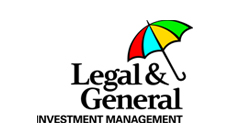Community Update
Sustainability in Uncertain Times

While businesses are struggling to respond to the existential threat of COVID-19, longer-term challenges such as sustainability may temporarily take a back seat. However, any short-term actions taken by organisations must still remain true to their purpose and values.
As we enter a new decade, businesses are becoming more aware they have just 10 years to deliver on the Sustainable Development Goals (SDGs) set by the United Nations – and that has brought a renewed sense of purpose and a heightened focus on targets.
Harry Morrison, Managing Director at Accenture Strategy, believes there has been a step change in behaviour with greater interest from companies looking to set strong 2030 goals that are based on hard evidence and aligned to the SDGs.
“We’ve moved beyond the era of incremental improvement on sustainability and we’re at a place where we should actually be solving the problems,” he says. “Companies are starting to talk about the endgame with science-based targets, for example getting to net zero on carbon. And that science-based idea of target-setting is key to a good strategy. There’s a new seriousness.”
Amy Francis, Senior Relationship Manager at Criticaleye, points to key areas that companies should consider when initiating cutting-edge sustainability strategies.
“To put a serious sustainability business strategy into practice, your organisation must have a clear idea of the targets that need to be achieved. They should be aligned to the commercial core of your business, and they have to be incorporated into the business strategy, not separate from it,” she says.
For Harry, moving sustainability on from being a specialist discipline and embedding it within the operations of the business is vital. “We’ve got to the point where we should scrap the sustainability strategy, we should just have sustainable businesses. A company can’t have a strategy and then a sustainability strategy – you need to have one strategy with sustainability at its core alongside all the other things that you’re dealing with," he says.
Ashley Phillips is Managing Director for UK Markets and Bioenergy of Danish energy company Ørsted. The business specialises in the construction and operation of offshore wind farms globally and transformed its business after exiting the oil and gas sector. He says winning the hearts and minds of all stakeholders is essential.
“We knew we had to engage everybody at all levels, but we also thought about how to position it as a strategic change as well as the right thing to do. We created a sense of pride in the vision and the purpose of the organisation, helping our people understand the strategic rationale of the harder decisions we had to make but also the future benefits.
“That buy-in is really important. If you fail to do that then sustainability strategies become a set of initiatives that just tick a box.”
Incorporating sustainability into the business strategy has financial implications, so getting the CFO on board is essential. Harry explains: “If the CFO is convinced and understands the business case and the link to the commercial success of the organisation, then you tend to get the investment and the focus to back up the vision. When those two things are not aligned, you find you can often make some progress but then hit the buffers.”
Tim Doubleday, Group CFO at Burger King UK, has seen the role of the wider leadership team change as the perception of sustainability has altered. “As the sustainability agenda has increased and broadened, it’s started to become more about business opportunity rather than just business risk. Changing the dynamic of that is what has got the broader C-suite and CEOs involved.
“The companies that react now are the ones that will feel less financial pain and reap the benefits of having sustainability at the heart of what they do,” Tim says.
Communicating the change to those outside the business is a key part of any strategy. This includes consumers, customers and particularly investors, who are now focusing harder on the sustainability agenda and have more analytical tools available to help guide their investment strategies.
“The ESG rating tools are getting better and more intelligent and investors are using them quite actively, so businesses really need to sharpen up their engagement and their communication to give their investors the data they need,” Harry observes.
Ashley agrees that reporting needs to be tailored and robust. “During Ørsted’s transition we reported on our progress to make sure we were very clear and transparent to people,” he says. “We are 50.1 percent owned by the Danish government, so externally we had to make sure that we had buy-in from those stakeholders and investors. We did that by having very measurable, impactful and transparent reporting – and that continues today.”
Harry believes that the right strategy will not just make a business look better, greener and more socially responsible, it will also engage with the core of what the business is about as it looks to reinvent its products and services. “Ultimately, sustainable businesses in many markets are being rewarded by their customers, so there’s no need to be fearful of the change,” he says.
While the serious challenges posed by COVID-19 look set to confront and confound people's lives for a considerable length of time, a coherent and sustainable business strategy must still be at the heart of any business recovery.
David Hobbs, Senior Editor, Criticaleye
Upcoming Criticaleye support on navigating the business impact of coronavirus includes:
- The upcoming Global Conference Call on Benchmarking Responses to COVID-19
- A review of the current outlook for business, including the impact of coronavirus on the financial markets and the critical steps business leaders are taking, in next week's Community Update
























